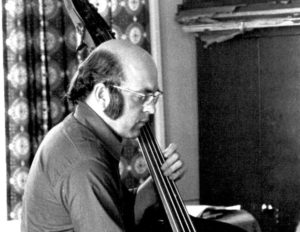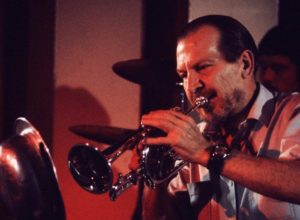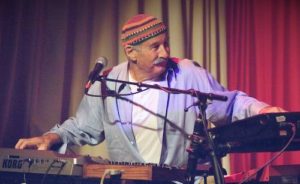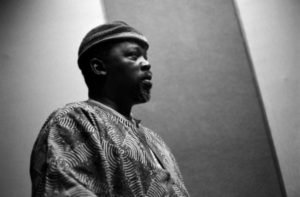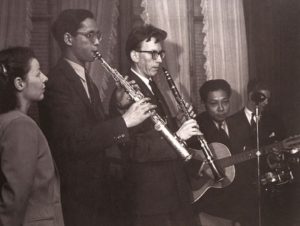Miroslav Vitouš
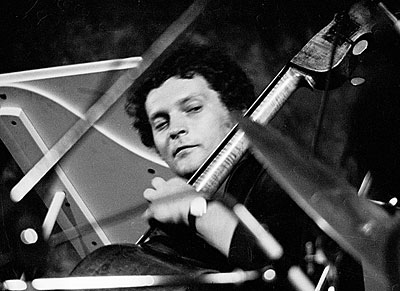
Miroslav Vitouš (born 1947) was born in Prague, in what was then Czechoslovakia. His father was a saxophonist, and he studied music from the age of six – first violin, then piano and finally bass from the age of 14. He studied at the Prague conservatory, where he met and played in a trio with pianist Jan Hammer and his brother Alan Vitouš on drums.
At an international competition in Vienna, organised by pianist Friedrich Gulda, Vitouš won first prize – a scholarship to Berklee College of Music in Boston. He studied at Berklee from 1966-7, and then moved to New York to be close to that city’s jazz scene. He found work with leading musicians of the period like Freddie Hubbard, Art Farmer and the Clark Terry-Bob Brookmeyer Quintet. It was with this latter group that he caught the attention of Miles Davis, and Vitouš joined him for a spell. In 1968, he began working with flautist Herbie Mann, recording several albums until 1971. In that group he met Roy Ayers, which led to Vitouš appearing on three albums with him. In 1969 he joined Chick Corea, appearing on his classic trio album Now He Sings, Now He Sobs with drummer Roy Haynes.
Vitouš made his debut as a leader with Infinite Search in 1970, with a group that featured Joe Henderson, John McLaughlin, Herbie Hancock and Jack DeJohnette. From 1971 until 1974, he was a founding member of Weather Report, appearing five albums with the group, and touring internationally. In the mid-1970s he took a break from recording and touring in order to practice on a new instrument he had custom-made for him. At the end of the decade he began a productive association with ECM Records, which began with a 1978 album with Terje Rypdal and Jack DeJohnette. This group recorded a follow-up in 1981, To Be Continued. Vitouš made four albums as leader for ECM, drawing on the label’s impressive ‘stable’ of mostly European musicians like John Surman, Jon Christensen and John Taylor, as well Kenny Kirkland. He reunited with Chick Corea and Roy Haynes in 1982. Vitouš also pursued a career in jazz education, becoming the head of jazz at the New England Conservatory of Music in 1983. He moved back to Europe in 1988, and has continued to work with some of the continent’s most important musicians, like Jan Garbarek, Emil Viklicky and Enrico Rava, among many others.
Key Recordings:
With Weather Report
Now He Sings, Now He Sobs (Solid State 1968) with Chick Corea
Infinite Search (Embryo 1970)
Journey’s End (ECM 1982)
